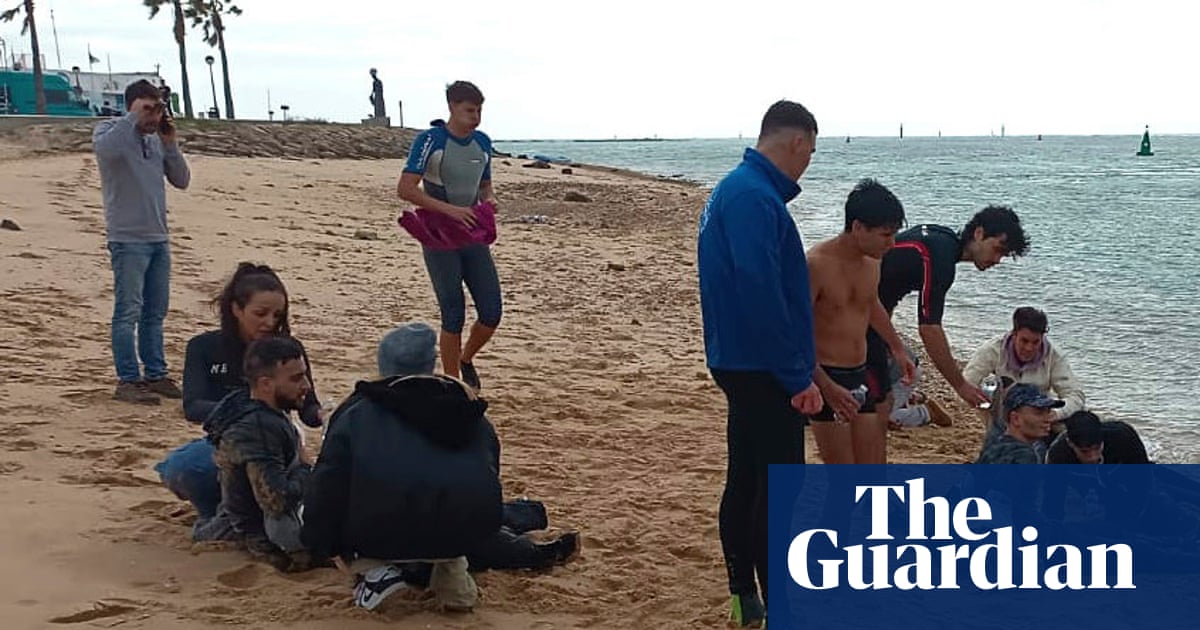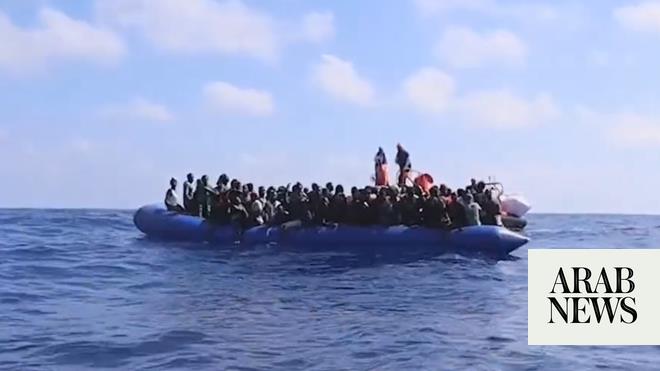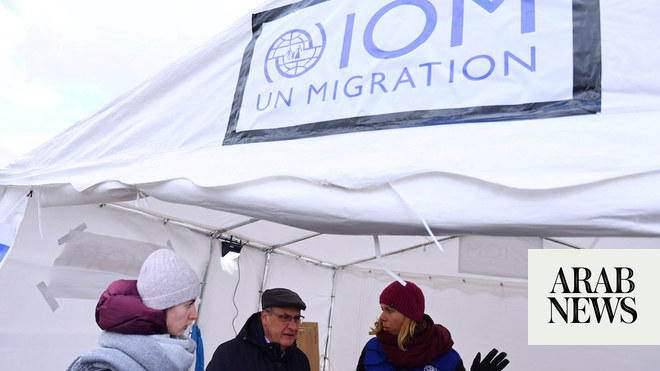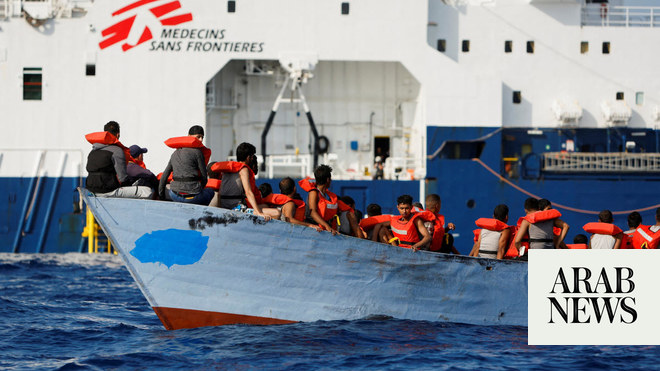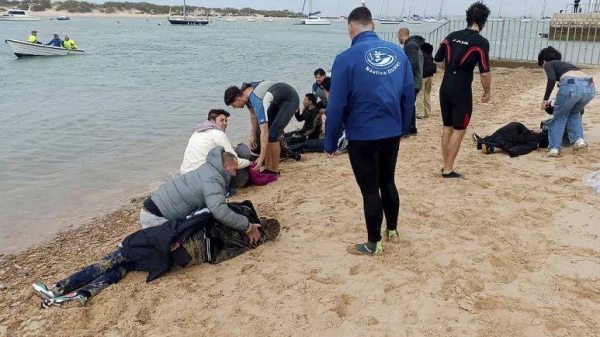
It took Javier González a minute to reach the migrants who had been forced from the speedboat off the Spanish coast, but by the time he got there, one of them had already died.
Javier González and his crew were filming a promotional video on the beach at Sancti Petri, on the Spanish coast of Andalucía, when they spotted a speedboat approaching the shore with more than twenty people on board.
Although the image was not unusual for González, as the beach is a "hot spot" for drug traffickers or incoming boats, what the Spaniard saw this time made his blood run cold.
The 27 North African migrants on the boat were being thrown into the water one by one, in the middle of a storm.
"There was a strong current, they didn"t know how to swim and they had a lot of clothes on. They were swimming against the current and drowning," González, who knows the area because he runs the Náuticas Gurri surf school on the same beach, told Euronews.
"The sea current pushed them to the bottom," he added.
When all the migrants on the boat were thrown about 50 metres from the shore, the boat turned and fled.
It was then that González grabbed his small dinghy and jumped into the sea with his son to save them.
"It took me about a minute to get into the sea and reach them, and when I did, one of them had already drowned, face down," says González.
"We started to get people into the boat, but some of them had white foam coming out of their mouths," he adds.
The rest of the team, who had stayed ashore because they were unfamiliar with the area and the currents, called the emergency services and the police.
According to Spanish police, the boat"s occupants left Morocco in groups of up to 40 people, who were abandoned at sea in different parts of the Andalusian coast.
Of the 27 who jumped into this dangerous part of the sea, only eight made it to the beach, four died the same day and more may be missing.
The Spanish police are investigating.
As many of the migrants in the boat were reluctant to jump into the water because they could not swim, and the boat could not get any closer to the shore without running aground, the smugglers used violence to scare them away.
"One of the boys told us that they threatened him with a gun to make him jump. I saw the others being pushed because they refused to jump," says González.
Once he had rescued them and they had reached the shore, the team members began to resuscitate the migrants themselves, keeping them warm with their own clothes while they waited for the emergency services.
Desperate, they did what they could until the professionals arrived.
"The protocol was terrible. The Red Cross took twenty minutes to arrive, the Spanish police took half an hour, and only then did the ambulance arrive. The Maritime Rescue Service didn"t even show up," says González.
Many wonder what would have happened if the heroic group had not been there to save them.
"There were three or four who were in very bad conditions. Others were suffering from hypothermia," he adds.
Initial investigations suggest that the boat was crewed by four people, two Spaniards and two Moroccans. It is also believed that the migrants paid up to €5,000 each for the trip.
Following the incident, the National Police have launched an investigation into the deaths, and members of the Judicial Police and the Forensic Police Brigades are working in the area.
Nevertheless, González complains that the area is known to be a "hot spot" for traffickers and yet the authorities do little to prevent this type of situation.
"If we hadn"t been here... I"m not a professional, I shouldn"t know how to help. The maritime service should have been here," he says.
Although the Spanish Canary Islands are the centre of irregular immigration, accounting for 70% of disembarkations, arrivals on the Iberian peninsula continue too.
According to the Andalusian Human Rights Association, the distance between Spain and Africa is just 14 kilometres, and although this migratory route cannot be compared to the Canary Islands, around 800 people have arrived in this area so far in 2023.
Nine people have also died on the coast of Cadiz, which includes Sancti Petri beach. — Euronews




